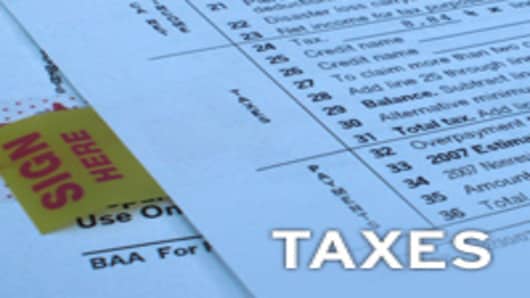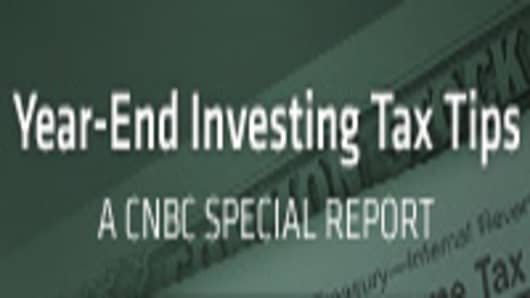For many Americans working overseas, this is the time of year they return home for a visit. They may want to revisit their tax situation and start planning.
The US tax code is complicated enough to tackle on its own. Throw in the tax rules and regulations of another country, and you’ve got a nightmare combination of paperwork and deadlines to wade through.
For expatriates, a little preparation will go a long way to smoothing the process of filing.
We asked Hong Kong-based U.S. tax experts to outline the most important factors Americans need to consider when they’re living and working abroad.
Here are ten things to keep min mind.
1. You always have to file.
US citizens, as well as green-card holders, are taxed by Uncle Sam on their worldwide income. That applies wherever in the world you work.
2. You do get a break.
Those working abroad get what’s called the foreign earned-income exclusion, which changes every year. It's $91,500 for 2010. If you have earned less than that this, you won’t have to pay any federal tax. But you still have to file.
“People talk to their tennis buddy or their coffee mate and they hear that if you made less than the $91,500, you don’t need to file, which is wrong,” says Nilar Chan, the U.S. tax partner at East Asia Sentinel Tax Services.
3. Housing costs count.
There’s also a housing exclusion on top of the earned income exclusion. That’s set by the IRS at a general level—$27,420 for 2010—but certain cities that are more expensive get further adjustments.
Hong Kong renters can this year deduct up to $114,300 in rent, management fees, utilities and car parking. Home owners don’t get that but they can deduct mortgage interest on an overseas home like a U.S. filer.
4. You get extra time to file.
Expatriates are granted an automatic two-month extension—to June 15. That gives you a little extra time to get the necessary paperwork together. It’s even possible to postpone filing as late as December 15—if you can show you’re waiting for third-party paperwork.
5. But you may have to pay for it.
The clock starts ticking on any tax that you owe as of April 15. If you owe tax, interest will start accruing on that date. So it’s best to estimate your tax and pay first even if you take the extension.
“Even though you are granted an automatic extension to June 15, any tax you owe is due on April 15, for both the state and feds,” says Cathy Mauer, a partner and U.S. tax expert at the Hong Kong office of Ernst & Young said. “That’s a part that a lot of people forget.”
6. Keep a calendar.
It’s important to keep track of exactly how much time you have spent in the United States and in other countries. U.S. citizens working overseas may qualify as a resident of a U.S. state, and therefore be subject to state tax, if they spend a substantial number of days in that state in any year.
Then there is the tax system of your host country. Each has its own rules, so make sure you have documentation to back up where you were during the year.
In general, non-U.S. citizens and non-green-card holders will be liable for U.S. tax in any year in which they spend 183 days or more in the United States. There’s also a complex formula used to work out if you qualify as a U.S. resident over a three-year period.
7. States have their own rules.
In general, U.S. expatriates won’t be subject to state tax if they live overseas in any given year. But some states such as Utah classify tax payers by a domicile rule rather than simple residency based on the number of days you spend there. Others like New York and California tally the number of days over a period longer than a year.
“Domicile states make it very difficult to break residency,” Mauer said. “If your intent is to go back there, you own a home there, have family there, go back there quite a bit to visit, then you don’t break residence.”
8. Report your overseas bank accounts.
The IRS held an amnesty in 2008 for U.S. citizens to declare their overseas bank accounts. And it is now cracking down on those who don’t comply. It’s called FBAR – foreign bank account reporting.
U.S. taxpayers have to file a report for any bank accounts they hold that have combined balances of more than $10,000 any time during the year. They must file the details of all the accounts, who owns them, and the highest balance in each account during the year.
That applies even for company accounts, if a US taxpayer has signing power, as a treasurer or comptroller, perhaps. Ownership of foreign companies and investment funds can also trigger reporting.
“If the U.S. person holds more than 10 percent ownership in a foreign corporation, separate disclosure is required,” says Louis Kwan at Russell Bedford’s Hong Kong unit.
9. Take expert advice.
Chances you need more than a software program to figure out your situation.
Chan notes that you don’t always have to take on an accountant, although of course she recommends it. Last year, the tax attaché based in Beijing came to Hong Kong to give free clinics on how to file.
“It is not cheap if you go to a professional firm,” warns Chan.
10. You can surrender your citizenship.
There’s always the option of revoking your green card or citizenship. That’s an obvious attraction when the highest rate of federal US tax is due to climb to 39.6 percent. Throw in state taxes of as much as 11 percent, as well as the social security (6.2 percent) and medicare (1.45r percent) taxes, and the tax burden can approach 55%.
By contrast, Hong Kong’s highest rate of income tax is a flat 15 percent. The U.K's 40 percent. Reneging on your citizenship may seem extreme, but it makes sense for Americans who have married a non-national and don’t plan on returning.
“One camp has been outside the U.S. for so long that it’s inconsequential for them to keep their blue passport,” Mauer noted.
But even that comes with strings. There is now an exit-tax penalty, based on your income over the last three to five years. You might have to pay a tax on some assets on a mark-to-market basis, as if they’ve been sold.
“It is much more difficult to give up now than over the last four or five years,” says Mauer.



